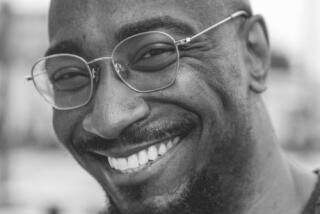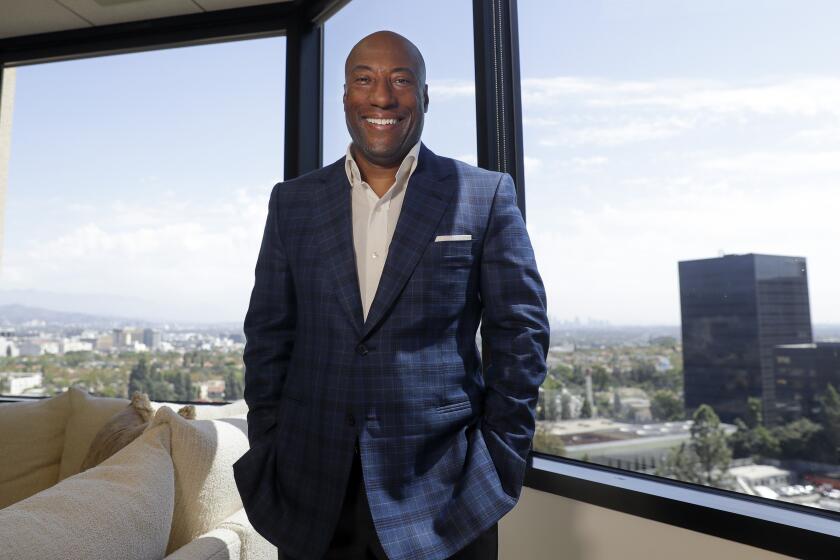Book Review: ‘Paris Was Ours,’ edited by Penelope Rowlands
- Share via
Paris Was Ours
Thirty-two Writers Reflect on the City of Light
Edited by Penelope Rowlands
Algonquin Books of Chapel Hill: 280 pp., $15.95 paper
For centuries Paris has been a magnet for artists, writers, musicians and hangers-on, cultural and otherwise. In the anthology “Paris Was Ours,” journalist Penelope Rowlands has gathered the thoughts of 32 writers — some of them important, others minor talents — in recounting their experiences living there.
Pulitzer Prize winner Stacy Schiff deftly balances the personal and professional, juxtaposing the research for her study “A Great Improvisation: Franklin, France, and the Birth of America” with her family’s misadventures. She enthusiastically captures one of essential characteristics of the city — the presence of the past in everyday life. She writes of herself and the founding father: “We were two very different Americans in Paris, but I delighted in the overlay of our lives. It did what a foreign adventure is supposed to do — it made the mundane thrilling… I could always justify shopping at the pricey ice cream shop on the rue Bois-le-vent. It seemed nearly obligatory to do so, given that the shop stands where the back door to Franklin’s home once had.”
Chef and author David Lebovitz reflects on how his efforts to be polite earned the friendship of the people in the shops he frequents. He adds, “I’m also grateful that I’m probably treated better than someone who moved to America would be, not speaking a word of the native language, trying to get by in a foreign land.”
But too many of the essays tell the reader more about the authors’ peccadilloes and prejudices than they do about Paris or Parisians. The writers talk about what they wanted, expected or demanded from the city. No one talks about what they sought to bring to it.
Everyone loves the museums and the monuments, the beauty and, of course, the food. Although a few contributors seem to take a perverse pride in not having mastered the French language (despite a class or two at the alliance française), everyone throws in a few words en français, to prove they didn’t just fall off the last camion de navets.
Several writers adopt the querulous tone of a customer returning a faulty appliance to Costco, as if the citizens of Paris were to blame when the essayists’ experiences as temporary residents failed to live up to their expectations.
In her rather fey prose, Natasha Fraser-Cavassoni complains that Parisians “are deeply unwelcoming. Or politely put, they are born cynics who lack an Anglo-Saxon’s curiosity about strangers.” She whines: “Imagine asking a middle-aged man for directions — it was my very first day — and being served with, ‘Mademoiselle, do I look like a map?’” If the reader changes “Mademoiselle” to “Lady,” it’s easy to imagine a New Yorker with a Mel Brooks accent serving the same remark. Or a native Angelino serving it to the umpteenth tourist who interrupted his errands to ask in fractured English where Paris Hilton’s house is. Nothing in the Declaration of the Rights of Man requires the residents of Paris to serve as unpaid tour guides.
Oh, how one wishes there was more here reminiscent of the great American writers who chronicled Parisian life, such as the New Yorker’s Janet Flanner or Julian Green, the only American to be elected to the French Academy. Spend an hour curled up with a copy of Flanner’s “Paris Was Yesterday” or Green’s “Paris.” Formidable.
Solomon is the author, most recently, of “The Art of ‘Toy Story 3’” and “Tale as Old as Time: The Art and Making of ‘Beauty & the Beast.’”
More to Read
The biggest entertainment stories
Get our big stories about Hollywood, film, television, music, arts, culture and more right in your inbox as soon as they publish.
You may occasionally receive promotional content from the Los Angeles Times.










